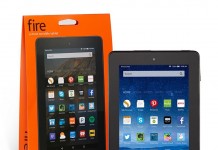 In the New York Times, Virginia Heffernan complains about the way some independent cafes in New York City now restrict or ban the use of e-book readers and tablets. (We’ve covered this particular issue before when Nick Bilton brought it up back in August.)
In the New York Times, Virginia Heffernan complains about the way some independent cafes in New York City now restrict or ban the use of e-book readers and tablets. (We’ve covered this particular issue before when Nick Bilton brought it up back in August.)
Heffernan notes that banning the use of laptops is understandable—it can interfere with ambiance and take up space that could otherwise be used by more paying customers. But she make a case that banning smaller devices runs contrary to the historical nature of coffeehouses. She points out that people in public spaces have to learn how to ignore distractions—especially in coffeehouses, which accommodate both people who talk and people who read.
You also can’t tell cafe patrons to stop reading — even when e-readers don’t look (for now) as classy as paperbacks, newspapers or pamphlets. Sure, e-readers are dangerous: someone reading on one might make a note or check Facebook or play Scrabble. Sorry, proprietors — if they can find the Web with their tablet or phone, you shouldn’t be stopping them.
Heffernan points out that Starbucks, as homogenized and sterile an experience as it can be, nonetheless provides free, unlimited wireless access to its patrons in all its locations. This, she says, confirms it as “a flawed franchise that is squarely in the public good.”
Here in Springfield, Missouri, I have not encountered a single coffeehouse that forbids laptops, let alone e-book readers. The closest anyplace comes is the Panera chain, which limits wifi access to one half hour per MAC address during peak hours (but doesn’t limit it outside of those hours), and there was also one café that had a no-laptops section but also offered free wifi to all. Everyplace else welcomes all the Internet-wired who also want to become caffeine-wired.
I wonder if a possible reason might be that, in a metro area as huge and densely-packed as New York, there are enough snooty people who don’t care for the Internet to support these places in business, whereas in a smaller place like Springfield those small numbers couldn’t support a business.
Regardless, as e-book readers become more and more common, and used by more of the people who attend this sort of coffeehouse, I would not be surprised if the restrictions on e-readers at least start to erode. Or else these coffeeshops may find their patrons start going elsewhere.
(Found via Slashdot.)
































New York Coffee House better get with the times ! Allow e-readers in or lose.
I think the issue is not the wifi usage so much as it is one of customers coming in and not being able to find seats because every table is occupied by a machine. Starbucks has been a favourite meeting spot for my dad and I because it’s a convenient location between both our homes, and it’s so annoying to go in there wanting a drink and snack together for our one little social meetup of the month only to find that there is not a single seat to be found. Would the coffee house rather lose five of these quicker-turnover customers like is, or one of these cyber-squatters? I have even seen posts on Ask Mefi from people asking about the best coffee shops in whatever town they are on to go take a laptop and work all day instead of working in an office!
I think that it should not matter what device a person is using—laptop, ereader, book on paper, whatever. But I do think that during busy times, they should enforce a time limit per table. The food court at several local malls does this. You can do whatever you like with your hour at the table, but when the hour is up, you’re done. Or else they should have a designated seating area (perhaps a bar-type setup where they are not tying up whole tables) for people who want to work, so that customers who want to sit and use the tables for food and drink can have them.
So, I can read a paper book, but not an ebook? That’s weird. If it’s about turning the tables over faster so they can make more money (no argument from me), then I think they should be banning anything that lets people sit and enjoy. No reading of any kind, no talking, no looking out the window, no writing…. Might as well get rid of the tables and ‘for here’ cups.
So, it’s joke right?
It’s all so knee jerk and irrational isn’t it. Crazy. What cafe’s need to keep control over is not how long people sit at the table and what they are doing. It is how much they spend per time frame – 30 or 60 minutes.
They seem to be oblivious to groups of students or families who sit and chat for an hour on one coffee, while getting their knickers in a twist over an eReader ? Daft.
They need to adopt a standard rule for everyone, and apply a minimum spend standard. Sit down and work on the laptop for two hours > Fine … but you have to spend a min of $15 an hour, say. And apply the same rule to the dawdlers and time wasters.